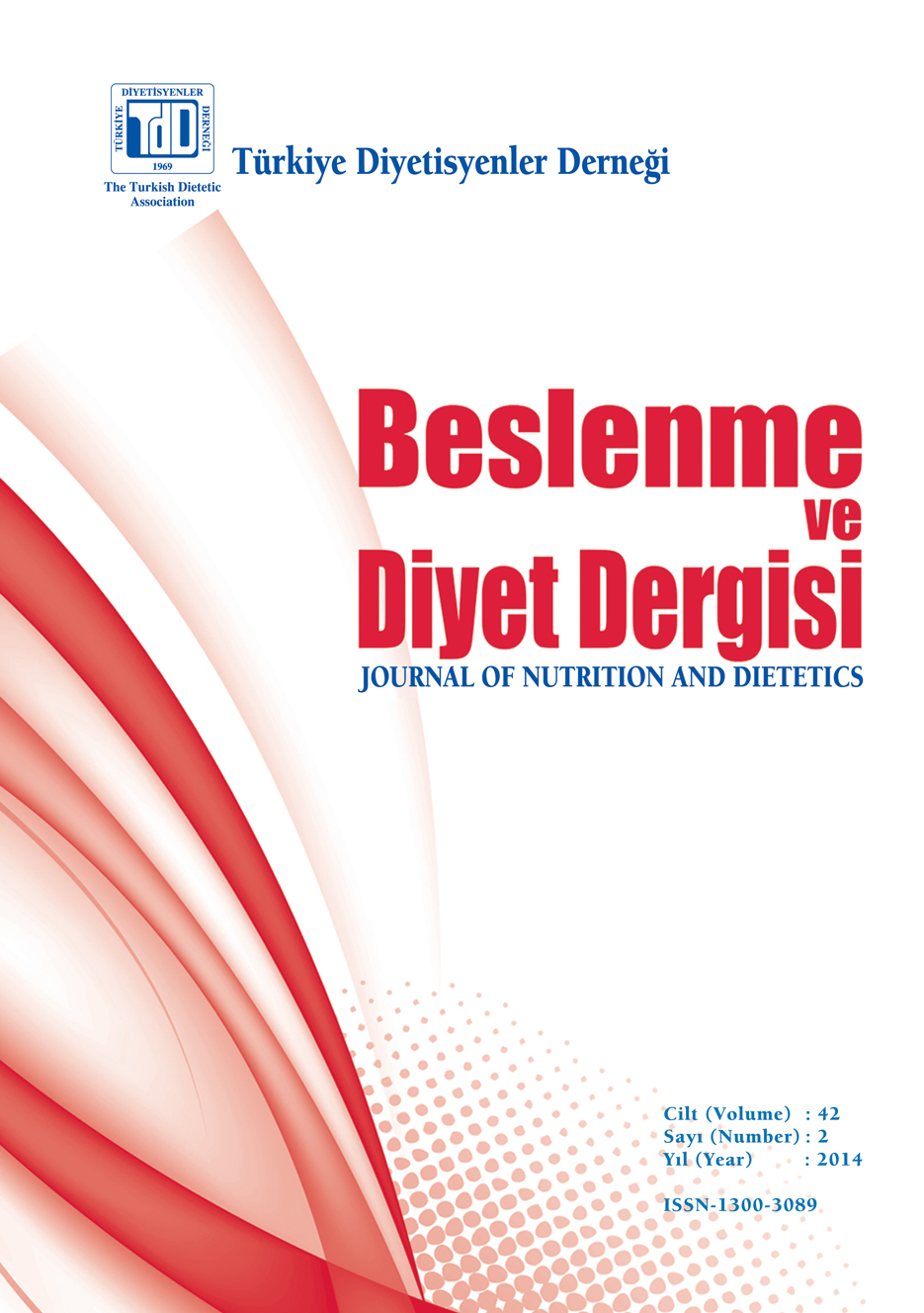The Effects of Drug Therapy on Nutritional Status in Children with Attention Deficit Hyperactivity Disorder
Keywords:
Nutrition, attention deficit hyperactivity disorder, medicationAbstract
Aim: The aim of this study is to examine the effect of attention deficit hyperactivity disorder (ADHD) medication on nutritional status in children. Subjects and Methods: This research was carried out on 18 girls (30%) and 42 boys (70%) with ADHD whose ages range between 6-12 years. To determine the effects of medication, children were divided into two groups: newly diagnosed and using drugs at least 6 months. Food consumption was recorded with 24-hour recall, and the daily energy and nutrient requirements were calculated in computer nutrient database (BEBİS) to determine nutritional status. These values were compared to age-specific requirements in Dietary Guideline for Turkey. It was assumed that children with BMI <15.percentile had the risk of malnutrition. Moreover, to evaluate nutrition status of children by the degree of adherence to the Mediterranean diet was assessed by the Mediterranean Diet Quality Index (KIDMED index). Data was analyzed with SPSS 20.0 statistical software program. Results: While the children supply the 74% of their daily energy requirements, 53% of energy was provided carbohydrates, 13.5% from proteins, and 33.5% from fats. The percentage of daily meeting requirements of folic acid, vitamin C, iron, and calcium were 79%, 78%, 77%, and 56% respectively. When the newly diagnosed group was compared to medication group, significant differences was observed and the percentage of daily energy requirements in medication group was lower than newly diagnosed group (p=0.049). Also, percentage of children with BMI <15. percentile in newly diagnosed group and medication group were 6.5% and %41.4 respectively, and this difference was statistically significant (p=0.001). Adherence to the Mediterranean diet was in moderate levels generally in both two groups (p>0.05). Conclusion: Results of this study showed that the children with ADHD have the risk of nutritional deficiency during medication. In this period, children with ADHD should be followed by a dietitian and intervened before occurrence of nutritional deficiencies.

